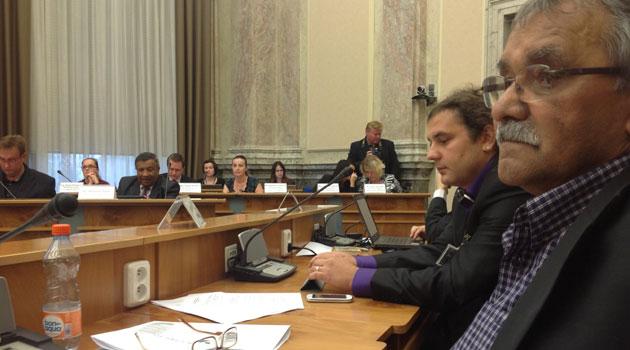Czech Gov't Roma Commission discusses amendments that could adversely affect Roma

On Thursday 23 October the Czech Government Inter-ministerial Commission on Roma Community Affairs met in the main building of the Government of the Czech Republic; its agenda included approving the Commission’s statutes, inclusive education, Romani integration strategy in relation to EU funds, and the issue of financing the Regional Coordinators for Romani affairs. The meeting closed with civil society member Martina Horváthová presenting research undertaken by the Slovo 21 organization into the position of Romani women in the Czech Republic.
"The most important points of the program were the approval of the Agency for Social Inclusion’s Oversight Committee, which will convene in November, and recommendations on the Government’s proposal to abolish the Framework Education Program for Primary Education for the Lightly Mentally Disabled," Commission vice-chair David Beňák told news server Romea.cz. Financing of Regional Coordinators was also discussed.
"It is absolutely necessary that financing for [the Coordinators’] work no longer be distributed through non-investment state subsidies, because that means the Regional Coordinators are forced to annually reapply for the subsidy," said Cyril Koky, the Romani Affairs Coordinator for the Central Bohemian Region. "We are trying to make sure this change in the financing of the Coordindators does not become an unbearable burden on the regional administration, that it will still work," Beňák said.
The discussion also concerned ways to evaluate the effectiveness of the financing spent from EU resources on projects targeting Romani minority integration. Another much-discussed topic was the amendment to the law on aid to those in material distress which has already been approved by the Senate.
That amendment transfers responsibility for permitting the operation of residential hotels in a municipality to local mayors. Most of those present at yesterday’s meeting saw a fundamental deficiency in the amendment as being that the awarding of housing benefits to individuals as part of aid to those in material distress will now depend exclusively on decisions taken by municipalities.
"That agreement from local government will not at all lead to municipalities getting rid of the residential hotels. They will be agreeing on whether individual people may receive housing benefits, and that change violates the Constitution," said Czech Human Rights Minister and Senator Jiří Dienstbier, who chairs the Commission.